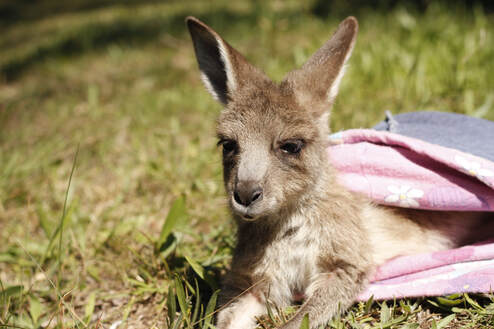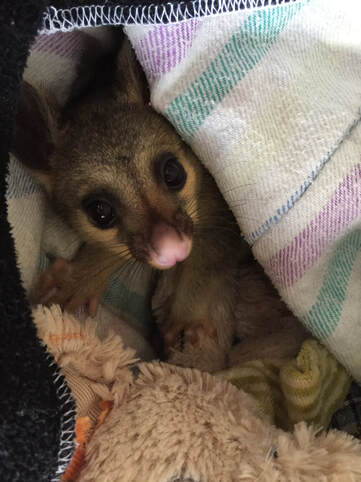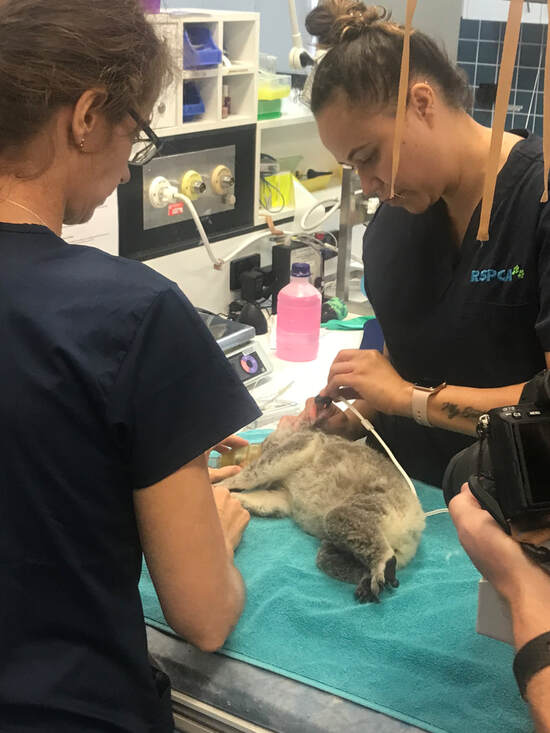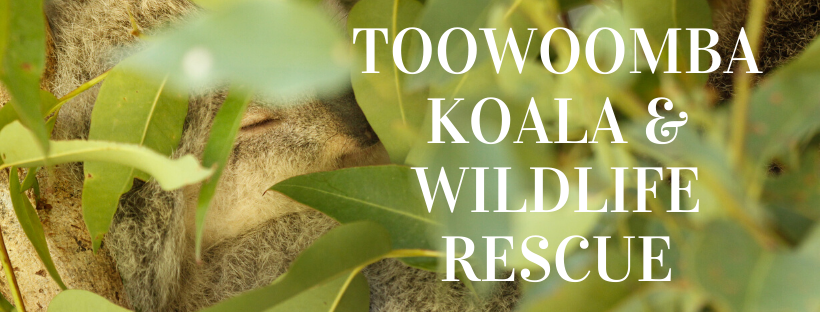|
We receive requests through the facebook pages of Toowoomba Koala and Wildlife Rescue and Wildlife Carers Toowoomba Region all the time on how to become a wildlife carer in the Toowoomba Region, when there aren't any incorporated groups issuing permits. It is not impossible to still become a wildlife carer, but there is no short way to do so. If you are willing to put in the time to do the training, volunteer and set yourself up with required equipment, we can guide you on how to work towards gaining a wildlife rehabilitation permit for least concern species. Caring for Australian native wildlife is specialised, and entirely different to caring for domestic animals. Wildlife carers are bound by legislation to the Code of Practice (see below). The main aim is to be able to successfully rehabilitate, raise and release Australian native animals back to the wild in perfect health. Wildlife rehabilitation volunteers are expected to undertake appropriate training. We have a close working relationship with Wildcare at Nerang and they conduct regular training courses and workshops which cover an extensive range of topics from reptile care to handling and anatomy and physiology. EXPECTATIONS OF A VOLUNTEER WILDLIFE CARER
REQUIREMENTS TO APPLY FOR A WILDLIFE REHABILITATION PERMIT
FURTHER INFORMATION ON HOW TO GET STARTED A variety of experience and certifications are required to being your journey to gaining a wildlife rehabilitation permit in the Toowoomba Region. We have a tick list below with a breakdown of further information on things you will require proof of to apply for your carers permit.
We hope that this gives you some motivation to get started on the correct way to become a wildlife carer in the Toowoomba Region. For any further questions, please don't hesitate to Contact Us.
Toowoomba Koala and Wildlife Rescue
1 Comment
While we are still rehabilitating our own Koala survivors from the Queensland Pechey Hampton Bushfires in November/December 2019, we are heartbroken at the devastation occurring and the mass loss of wildlife in New South Wales and Kangaroo Island.
The public attention for the volunteer wildlife rescuers has been incredible world wide and many people are confused about where to donate to help small branches or groups of wildlife carers direct, with many worrying donations will be used for administration purposes. We have asked around with fellow wildlife carer & rescuer friends both here in Queensland and also in New South Wales and here is a small list of recommended groups that would be grateful for any assistance in New South Wales if you would like to support their work.
Murray River Wires (Recommended by Nicola)
WEBSITE & DONATIONS: https://www.wires.org.au/branch/murrayriver Far South East Wires (Recommended by Fiona) WEBSITE & DONATIONS: https://www.wires.org.au/branch/farsoutheast Mid North Coast Wires (Illawarra) (Recommended by Fiona) WEBSITE & DONATIONS: https://www.wires.org.au/branch/midnorthcoast Shoalhaven Bat Clinic (Recommended by Kerryn) WEBSITE & DONATIONS: https://shoalhaven-bat-clinic.com/ FACEBOOK: https://www.facebook.com/Shoalhaven.Bat.Clinic Kangaroo Protection Co-operative (Recommended by Brendon) WEBSITE & DONATIONS: https://www.kpcwildlifesanctuary.org.au/index.php/support-us FACEBOOK: https://www.facebook.com/kpcsanctuary/ NSW Wildlife Council (Recommended by Ben) WEBSITE & DONATIONS: 100% guarantee of donations to go to wildlife groups and carers assisting with the nsw fire rescues. https://www.gofundme.com/f/nsw-wildlife-council-drought-amp-fire-recovery-fund Wildlife Land Trust (Humane Society International) (Recommended by Evan) WEBSITE & DONATIONS: 100% guarantee of donations to go to individual wildlife carers assisting with bushfire wildlife rescue. https://action.hsi.org.au/page/54414/donate/1 FACEBOOK: https://www.facebook.com/wltau/
Many Thanks for your support for our fellow wildlife carers in New South Wales,
Judi & Brendon Gray Toowoomba Koala and Wildlife Rescue www.toowoombakoalarescue.org www.facebook.com/toowoombakoalarescue Orphaned joey koala Jacob attended his first visit to the RSPCA wildife hospital at Wacol on 13th January 2020. He was very well behaved and passed all of his medical tests with flying colours. He came home with us to be raised until he can be released.
RESCUE DATE: 11th January 2020 RESCUE LOCATION: Private property at Meringandan REASON FOR RESCUE: Orphaned, found on his own without his mother, who could not be located to reunite them. WEIGHT AT TIME OF RESCUE: 1.52kg FIRST HOSPITAL VISIT: 13th January 2020 - RSPCA Wildlife Hospital, Wacol ESTIMATED AGE BY HOSPITAL: 7 Months Old BODY SCORE: 8 (Score of 1-10 system with 10 being the best) MICROCHIP: Jacob now has special microchip that can track his information and be scanned easily at any vets. |
AuthorJudi Gray - Toowoomba Koala and Wildlife Rescue Archives
July 2023
Categories
All
|




 RSS Feed
RSS Feed
